Opening Conference
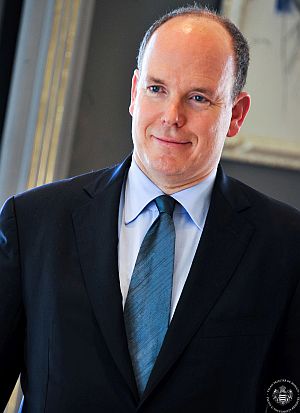
The conference organisers are pleased to announce that HSH Prince Albert II of Monaco will be officially opening the Species on the Move conference at Kruger National Park. HSH the Prince is dedicated to the protection of the environment and understands how important it is to fully explore the effects of climate change on biodiversity, and the implications of climate-driven changes in species distributions on human health and well-being and is pleased to support the conference.
Presenting in: Theme 1
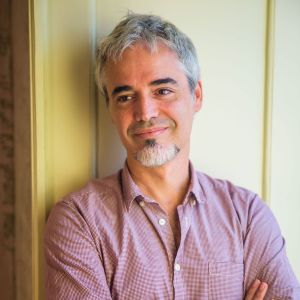
Miguel B. Araújo’s research focus in the study of climate change effects on biodiversity. His research has been critical to the establishment of current best practices for predicting biodiversity change through time and for assessing the broader consequences of human activities in the natural world. His work seats comfortably at the crossroads of multiple disciplines, with key contributions in biodiversity informatics, biogeography, conservation planning, macroecology, and modelling. He is a Research Professor of the Spanish Research Council (CSIC) at the National Museum of Natural Sciences in Madrid and a Visiting Professor at the Universities of Copenhagen and Évora. With more than 200 publications in the fields of biogeography and climate change he was listed as ‘highly cited‘ by Thomson Reuters. He won several awards, including the Pessoa Prize (2018) awarded to “Portuguese citizens whose contributions have been particularly relevant in the domains of arts, literature, or science”; the Ernst Haeckel Prize (2018) award to “honour senior scientists for their outstanding contribution to European ecological science”, the King James I Prize (2016) awarded to researchers who contributed “to the improvement of our ecological environment”; the IBS (International Biogeography Society) MacArthur & Wilson Award (2013), given to an individual “for notable, innovative contributions to biogeography at an early stage in their career”; and the GIBIF (Global Information Biodiversity Facility) Ebbe Nielsen Prize (2013) awarded to researchers that “combine biosystematics and biodiversity informatics in an exciting and novel way”.
Presenting in: Theme 2
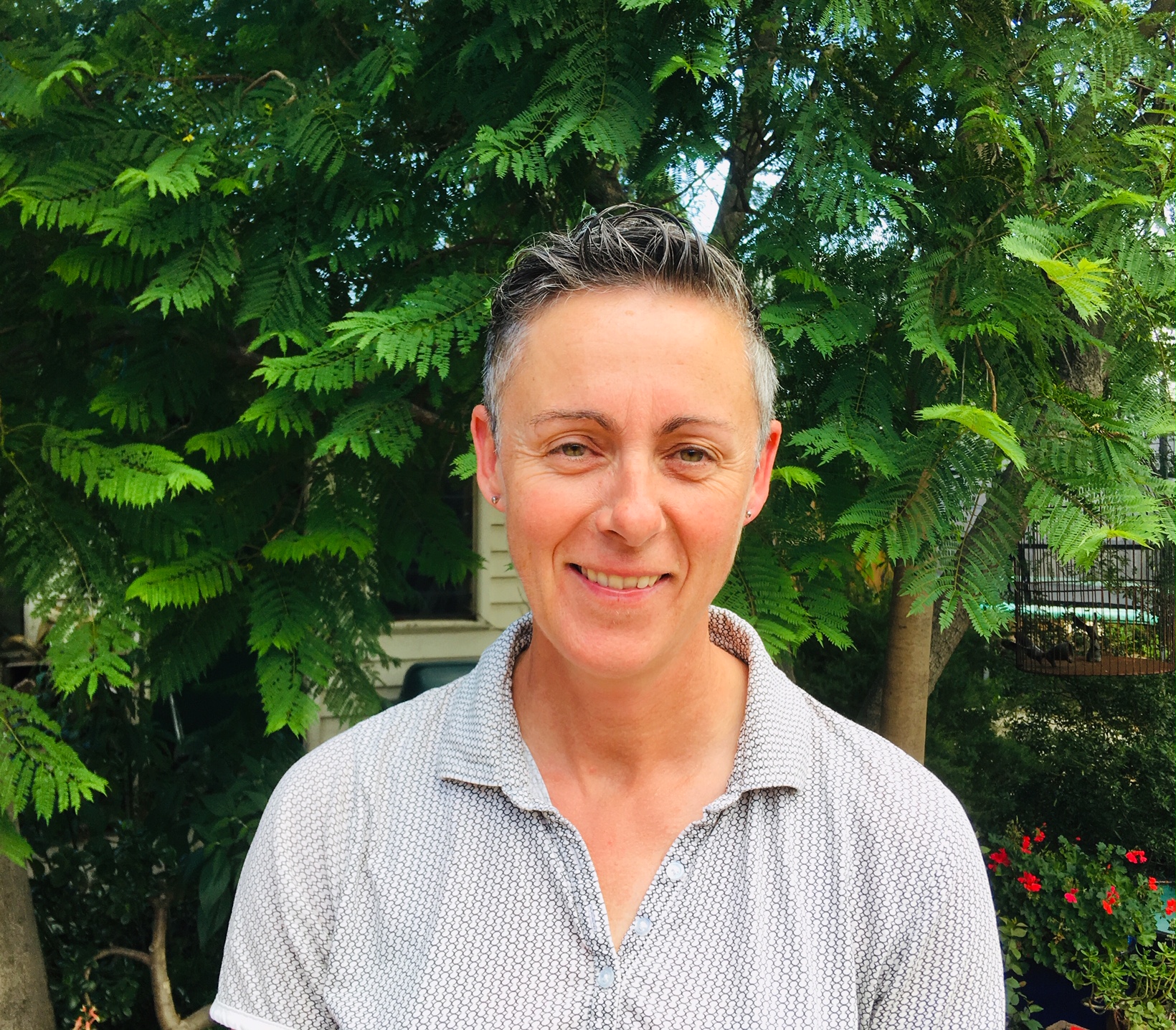
I am an evolutionary biologist based at Monash University in Melbourne, Australia. My research aims to understand the genetic basis of adaptation to environmental change. Working primarily with small terrestrial and aquatic ectotherms, I use a combination of techniques, including clinal (field) studies of phenotypic divergence, experimental evolution, quantitative genetics and genomics to understand the factors that facilitate and constrain adaptation to changing environmental conditions and population persistence. I am also interested in exploring how evolutionary processes can be explicitly incorporated into biodiversity conservation and management.
Presenting in: Theme 3
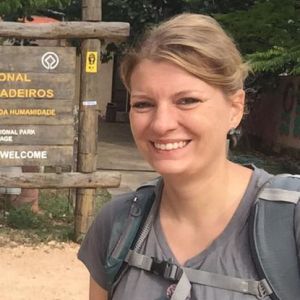
Alke Voskamp is a postdoctoral researcher at the Senckenberg Biodiversity and Climate Research Centre in Frankfurt, Germany. Her research interests are focused around the conservation of biodiversity and, in particular, assessing the impacts of environmental change on species distributions and diversity patterns. She received her PhD in Ecology in 2018, modelling the impacts of climate change on the distributions of the world’s terrestrial bird species, identifying gaps in the current strategies for targeting and protecting threatened biodiversity and developing optimized conservation strategies. Her studies now focus on assessing the impacts of climate and land use change on terrestrial vertebrate distributions, ranging from potential changes in global biodiversity patterns to changes in local species community compositions.
Presenting in: Theme 4
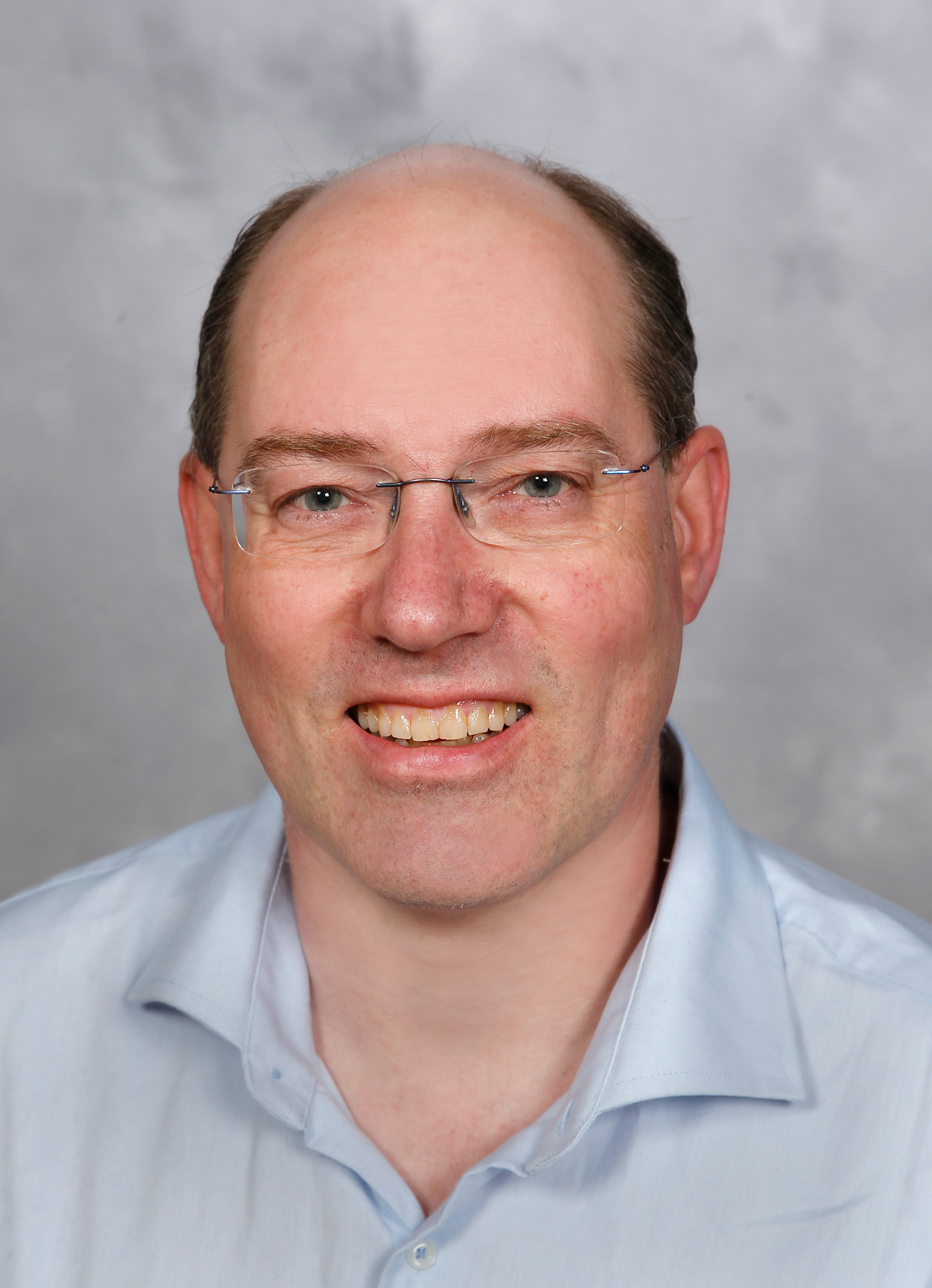
I hold a full professor-chair in Macroecology focusing on biodiversity at the Natural History Museum of Denmark, University of Copenhagen, a professor-chair in Macroecology at Imperial College, London and an Adjunct Professorship at Peking University, China. In Copenhagen, I am the director of a Danish Nation Research Foundation Center of Excellence for Macroecology, Evolution and Climate
In my biodiversity research I merge macroecological distribution data on thousands of species (millions of records) with evolutionary information derived from phylogenetic trees. Currently I explore new frontiers of research by combining the use of modern DNA- and genomic-techniques, including information from ancient DNA, novel macroecological predictive, simulation and null models, new biodiversity and climate-change ensemble forecast and hindcast models of species distribution, and powerful bioinformatics tools and statistics. The aim is to enable a truly holistic approach ito understand how the major geophysical, terrestrial and oceanic processes act together in shaping the distribution of life on Earth and how we may mange and preserve it.
Presenting in: Theme 5
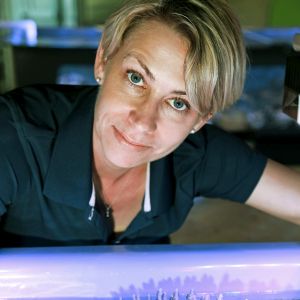
Dr Line Bay is a principal research scientist at the Australian Institute of Marine Science. She is an evolutionary ecologist whose research integrates physiological, genetic and genomic data to understand how corals interact with their environment, and their potential to evolve increased tolerance under projected environmental change. Dr Bay currently leads the AIMS Reef Recovery, Adaptation and Restoration team, and is a core member of the Reef Restoration and Recovery Program. This major multi-disciplinary and multi-institutional program is exploring a suite of potential interventions that could be developed and applied at scale for practical restoration and adaptation of coral reefs in a warming world including the facilitated movement and adaptation of coral populations and species. Dr Bay holds a PhD in population genetics from James Cook University and is an author of more than 60 scientific and technical publications relating to coral reefs. She holds adjunct positions with James Cook and Oregon State Universities and editorial roles with Proceedings of the Royal Society B (Biology), Coral Reefs, BMC Evolutionary Biology and Frontier in Marine Science.
Presenting in: Theme 6
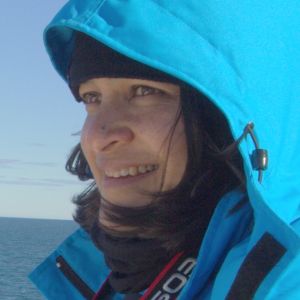
Dr. Renuka Badhe currently serves as the Executive Secretary of the European Polar Board, and is based in the Netherlands. Her background is in economics and public policy, and she holds a PhD on southern ocean phytoplankton physiology. Renuka has worked with a range international organisations on various aspects of polar science, policy and/or strategy development. She has worked both in the Antarctic and Arctic regions, and works towards ensuring that there is a voice for members of underrepresented minorities, both through a gender and geographical perspective. Her current responsibilities include serving as a Chair of EU-PolarNet project’s External Expert Advisory Board, and service on many national and international committees. She is particularly interested in promoting polar research to a wide audience using a variety of traditional and non-traditional communication tools, and projects looking at the interface between governance, science, and policy in the polar regions.
Presenting in: Theme 7

Sabine Henry is a Professor in Geography (University of Namur, Belgium). Her research line is the interaction between environment and migration at the household or individual -level. Her research builds on a strong expertise and knowledge of human migration patterns, especially in Africa. In Burkina Faso, she provided one of the rare empirical evidences on the effects of drought on migration. In Ecuador, she focuses on the environmental benefits of the international migration for the home country, through the lens of resilience. In the Philippines, she provided an in-depth understanding of the links between migration, vulnerability, land use and water management. One of her current projects focuses on the estimation of vulnerability to seism in Haiti.
Presenting in: Theme 8
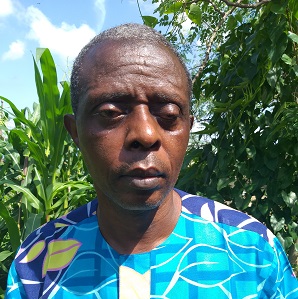
Chief Edwin Ogar works with indigenous peoples of Ekuri that owns the famous Ekuri community forest in Cross River State of Nigeria. His works focuses on climate change mitigation to limit the magnitude or rate of long-term warming and its related effects. This involve reduction in human (anthropogenic) emission of greenhouse gases (GHGs through land use planning, sustainable forest management and to increase the capacity of carbon sinks through reforestation (agro-forestry).
He led Ekuri community to be recognized as a flagship community forestry project in Nigeria; best and largest communally managed forest in West Africa totaling 33,600ha, a recipient of the UNDP Equator Award in 2004. He also led six members of Ekuri community to voluntarily served 2 years imprison in lieu of allowing the logging of this rich forest. He catalyzed the successes of Ekuri community that has received visitations by many communities in Africa, researchers and NGOs to learn from Ekuri’s perspectives. Chief Ogar has also co-authored Nigeria’s National Guidelines on Community Based Forest Management as well as other books. He has also attended many conferences and one of his paper presentations ‘’Community Sharing Benefit in Ekuri community in Nigeria’’ in Darwin, Australia, has been adopted by UN-REDD+ for benefit sharing mechanism for Nigeria.
Presenting in: Theme 9
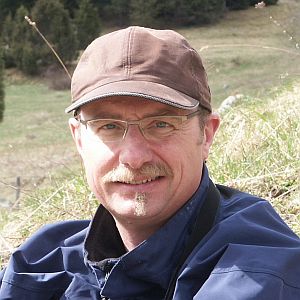
Tomas Thierfelder holds a tenure position as senior scientist and lecturer at the Swedish University of Agricultural Sciences, Uppsala. He specialises in biometry with a range of biological and geo-related applications, with the construction of digital research infrastructures, and with the theory of interdisciplinary research. Tomas is currently co-coordinating a major Nordic Centre of Excellence (Climate Change Effects on the Epidemiology of Infectious Diseases and the Impacts on Northern societies – CLINF), is the principal investigator of major international and national science infrastructures (INTERACT and SITES), is the principal investigator of a national Swedish agricultural decision support infrastructure for integrated pest management, and is engaged as a statistical expert in the development of new sustainable forestry technologies.
Presenting in: Theme 12
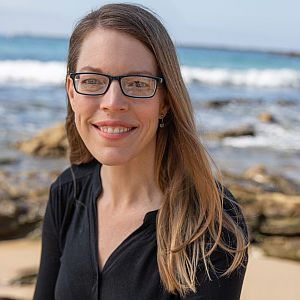
Cascade Sorte joined the faculty at University of California (UC) – Irvine (in the Department of Ecology and Evolutionary Biology) in 2014, after completing a Master’s degree at UC – Santa Barbara, Ph.D. at UC – Davis, and postdoctoral research at University of Massachusetts – Boston. In 2017, she was elected an Early Career Fellow of the Ecological Society of America. As an integrative marine ecologist, Prof. Sorte’s research spans ecological scales from physiology to biogeography. She uses a mechanistic approach to investigate responses to global change, particularly climate change, species invasions, and climate-driven range shifts.
Presenting in: Theme 13
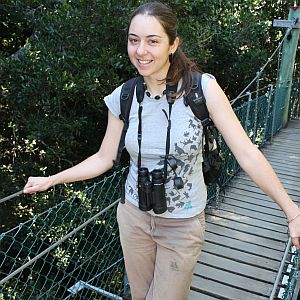
April Reside’s research focusses on climate change impacts to Australia’s terrestrial vertebrate and freshwater fauna. By modelling species distributions for both current and future climate scenarios, this work identified future biodiversity hotspots and climate refugia. April applies conservation planning frameworks to identify spatial priorities for climate change adaptation for biodiversity and carbon sequestration. Her research has fed into Natural Resource Management and government planning for climate change adaptation.
April is involved in on-ground threatened species conservation through the Recovery Team for the Black-throated Finch; and Birdlife Australia’s Research and Conservation Committee and Threatened Species Advisory Committee.
Presenting a plenary session
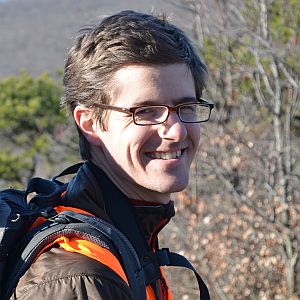
Malin Pinsky is an Associate Professor at Rutgers University (New Jersey, USA) in the Department of Ecology, Evolution, and Natural Resources, where he leads a research group studying global change ecology and evolution in the ocean. The ocean is a fundamentally different environment from that on land, and a central interest in his research is the extent to which global change patterns and processes are similar across land and sea. Integrating tools from statistical ecology, population genomics, field observations, and mathematical modeling, his research aims to understand the consequences of these differences for global change in the ocean and the implications for developing more sustainable ocean uses. He developed the OceanAdapt website to document shifting ocean animals in North America and has published articles in Science, PNAS, and other international journals. He has a Ph.D. from Stanford University, an A.B. from Williams College, and grew up near the coast of Maine.
Presenting a plenary lightning talk
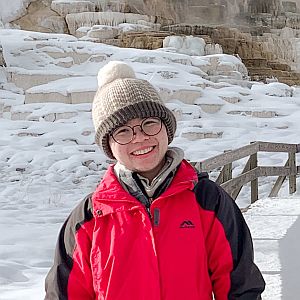
Fengyi Guo (Freda) is broadly interested in global change impacts on species distribution and movement patterns, the conservation implications and mitigation strategies. Her research topics include the interactive effects between climate and land-use change on species elevational range shifts, behavioral thermal constraints on global species distributions, as well as the assessment and enhancement of habitat connectivity for species movements.
Freda holds a BSc (Hons) and an MPhil in Ecology from the University of Hong Kong. She is currently a PhD student at the Department of Ecology and Evolutionary Biology in Princeton University.
Presenting a plenary lightning talk
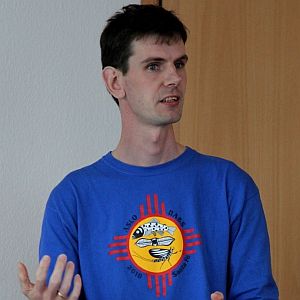
Wilco Verberk is an Assistant professor at the Department of Animal Ecology and Physiology, Radboud University Nijmegen, the Netherlands. He received his Ph.D. in Freshwater Ecology in 2008, investigating species responses to ecosystem restoration. His studies now focus on the ecophysiology of aquatic invertebrates to better understand their thermal niche and predict their responses to climate change.
Presenting in the session “Interviews with Indigenous Elders, hosted by Tero Mustonen”
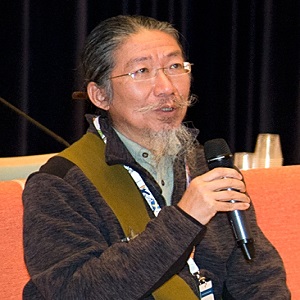
Sutej Hugu is based in Pongso no Tao in Taiwan, and in 2000 co-founded the Cultural Taiwan Consortium, a national NGO that works towards an integrated national identity by seeking connectedness to the land and nature. Among many other important activities and roles, in 2014, with some veterans of the indigenous peoples movement, he assisted in launching the Taiwan Indigenous Conserved Territories Union (TICTU). TICTU today federates 748 tribal communities, whose indigenous territories almost entirely overlap with state protected areas and national forests. Hugu’s vision of restoring Indigenous territories is about tribal communities deeply embedded in their ecological habitats; indigenous rights fully implemented by traditional institutions; local knowledge and land ethics adaptively applied; and collaborative livelihoods achieving common wellness for all living beings.
